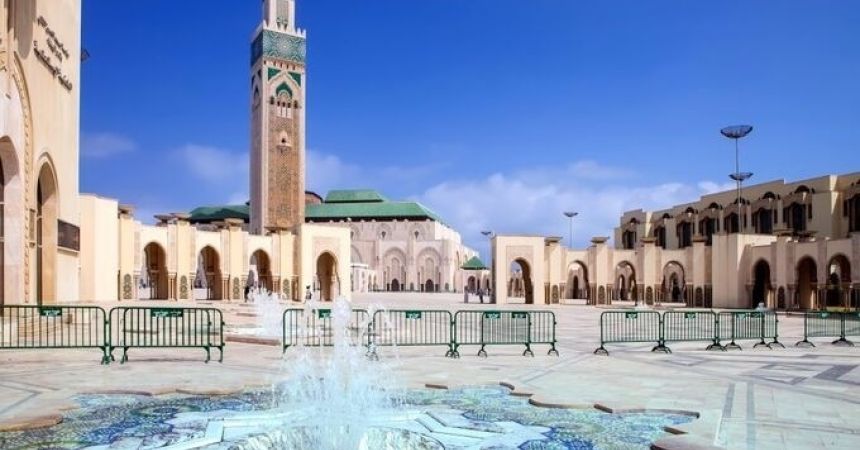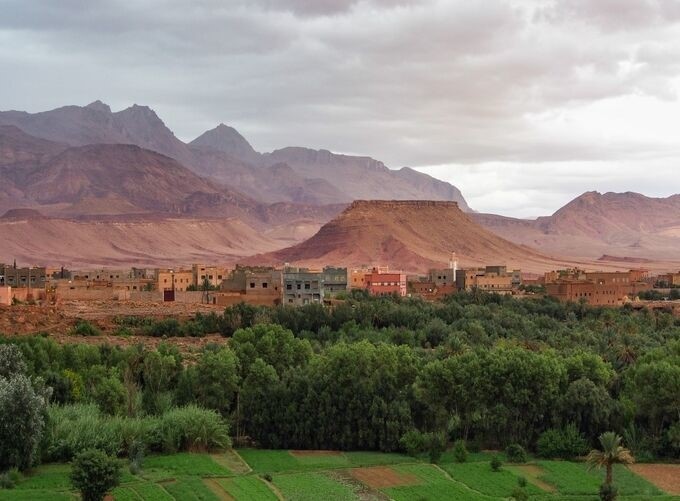
Safety in Morocco: Tips for Stress-Free Travel
Morocco is a country that captivates travelers with its rich history, vibrant culture, and stunning landscapes. From the bustling souks of Marrakech to the serene dunes of the Sahara Desert, Morocco offers a diverse array of experiences. However, one question that often arises is, "Is Morocco safe to travel?" This comprehensive guide aims to address concerns, provide practical safety tips, and offer insights to ensure you have a safe and enjoyable trip to Morocco.
Understanding the Current Safety Situation in Morocco
General Safety
Morocco is considered one of the safest countries in North Africa for tourists. The Moroccan government places a high priority on the safety and security of visitors, and the country has a well-developed tourism infrastructure. Violent crime against tourists is rare, and the most common issues are petty crimes such as pickpocketing and scams, which are typical in many tourist destinations worldwide.
Political Stability
Morocco is a stable and relatively peaceful country. The government is a constitutional monarchy, and the political environment is generally stable. While there have been occasional protests, they are typically peaceful and localized. Tourists are rarely affected by political events.
Terrorism
Like many countries, Morocco has faced threats of terrorism. However, the Moroccan authorities have implemented stringent security measures to prevent terrorist activities, and the country has not experienced any major terrorist attacks in recent years. The risk of terrorism is considered low, but it is always wise to stay informed about current events and travel advisories.
Common Safety Concerns for Tourists
Petty Crime
Petty crime, such as pickpocketing and bag snatching, can occur in crowded places, especially in popular tourist areas like medinas, markets, and public transportation. To minimize the risk:
- Keep your valuables secure and out of sight.
- Use a money belt or neck pouch to carry important documents and cash.
- Be cautious of your surroundings, especially in crowded areas.
Scams
Tourists may encounter various scams, such as overcharging for goods and services or being approached by unofficial guides offering tours. To avoid scams:
- Agree on prices beforehand, whether for goods, services, or taxi fares.
- Use licensed guides and official tour operators.
- Be wary of unsolicited offers and trust your instincts.
Traffic and Transportation
Traffic in Moroccan cities can be chaotic, and road conditions vary. If you plan to drive, be aware of local driving habits and road rules. Using public transportation or reputable taxi services can be safer options. When crossing streets, be cautious and use pedestrian crossings where available.
Health and Hygiene
Health risks in Morocco are generally low, but it's essential to take precautions:
- Drink bottled or filtered water, as tap water is not recommended.
- Avoid street food from unhygienic stalls; choose busy vendors with high turnover.
- Use hand sanitizer and wash your hands regularly.
Safety Tips for Female Travelers
Dress Modestly
Morocco is a conservative country, and dressing modestly shows respect for local customs and reduces unwanted attention. Women should cover their shoulders, cleavage, and knees. A lightweight scarf can be handy for covering up when needed.
Avoid Walking Alone at Night
While Morocco is generally safe, it's advisable for women to avoid walking alone at night, especially in less busy areas. Travel with companions or use reputable transportation services.
Stay in Reputable Accommodations
Choose accommodations with good reviews and a reputation for safety. Many riads and hotels offer secure environments and can provide advice on safe areas to visit.
Respect Local Customs
Understanding and respecting local customs can enhance your safety and travel experience. Avoid public displays of affection and be mindful of local etiquette.
Safe Destinations in Morocco
Marrakech
Marrakech is one of Morocco's most popular tourist destinations, known for its vibrant souks, historic palaces, and bustling medina. The city is generally safe for tourists, but it's essential to stay vigilant in crowded areas and be cautious of scams.
Fes
Fes is famous for its well-preserved medieval medina, a UNESCO World Heritage site. The city is safe for tourists, but the narrow alleys of the medina can be confusing. Consider hiring a licensed guide to navigate the area safely.
Chefchaouen
Chefchaouen, known as the "Blue City," is a serene and picturesque destination in the Rif Mountains. It is considered one of the safest places in Morocco, with a relaxed atmosphere and friendly locals.
Essaouira
Essaouira is a coastal town with a laid-back vibe, famous for its beaches, seafood, and historic medina. The town is safe and welcoming to tourists, making it an excellent destination for solo travelers and families.
Sahara Desert
The Sahara Desert offers a unique and unforgettable experience, from camel treks to desert camping. Organized tours are the safest way to explore the desert, as they provide experienced guides and necessary safety measures.
Emergency Contacts and Services
Emergency Numbers
- Police: 19 (in cities) or 177 (in rural areas)
- Medical Emergencies: 15
- Fire Services: 15
Embassies and Consulates
Having the contact information for your country's embassy or consulate in Morocco can be useful in case of emergencies. Embassies can assist with lost passports, legal issues, and other emergencies.
Hospitals and Clinics
Major cities in Morocco have well-equipped hospitals and clinics. For minor health issues, pharmacies are widely available and can provide over-the-counter medications. In case of serious medical emergencies, seek treatment at a reputable hospital or clinic.

Cultural Awareness and Etiquette
Greetings
Moroccans are known for their hospitality. When greeting locals, a handshake with the right hand is common. In more formal settings or between men and women, a slight bow or placing your hand on your heart can show respect.
Respect for Religion
Islam is the predominant religion in Morocco, and religious practices are an integral part of daily life. During the holy month of Ramadan, Muslims fast from sunrise to sunset. While non-Muslims are not expected to fast, it's respectful to avoid eating, drinking, or smoking in public during daylight hours.
Photography
Morocco is incredibly photogenic, but always ask for permission before taking photos of people, especially in rural areas and religious sites. Some locals may expect a small tip in exchange for photographs.
Public Behavior
Public displays of affection are frowned upon, and it's essential to respect local customs and dress modestly, particularly in rural areas and religious sites.
Traveling with Children
Family-Friendly Destinations
Morocco family-friendly destination with plenty of activities for children. Cities like Marrakech, Essaouira, and Chefchaouen offer a range of family-friendly attractions, including gardens, beaches, and cultural experiences.
Safety Tips for Families
- Ensure children are supervised in crowded areas.
- Use child-friendly accommodations with good reviews.
- Keep a close eye on children near water or in busy markets.
Sustainable and Responsible Travel
Supporting Local Communities
Support local communities by shopping at local markets, dining at family-owned restaurants, and staying in locally owned accommodations. This helps boost the local economy and promotes sustainable tourism.
Respecting the Environment
Be mindful of your environmental impact by reducing plastic use, conserving water, and avoiding activities that harm wildlife or natural habitats. Participate in eco-friendly tours and support businesses that prioritize sustainability.
Ethical Tourism
Respect local customs and traditions, and be a responsible traveler by understanding the cultural context of the places you visit. Avoid exploiting local communities or engaging in activities that contribute to cultural degradation.
Health Precautions and Vaccinations
Recommended Vaccinations
Before traveling to Morocco, check with your healthcare provider for recommended vaccinations. Common vaccinations for travelers include:
- Hepatitis A and B
- Typhoid
- Tetanus-diphtheria
- Rabies (for certain travelers, especially those planning extended stays or animal interactions)
Food and Water Safety
To avoid foodborne illnesses, follow these guidelines:
- Drink bottled or filtered water.
- Avoid ice in drinks unless you are sure it is made from purified water.
- Eat at reputable establishments and choose cooked foods over raw or undercooked dishes.
- Peel fruits and vegetables or wash them thoroughly with purified water.
Transportation Safety
Taxis and Ride-Sharing
Taxis are a common mode of transportation in Moroccan cities. Always use official taxis, and agree on the fare before starting your journey. Ride-sharing services like Uber are not widely available, but local apps like Careem can be used in some cities.
Public Transportation
Buses and trains are generally safe and reliable options for traveling between cities. Ensure you keep an eye on your belongings and avoid traveling alone at night.
Renting a Car
If you plan to rent a car, familiarize yourself with local driving laws and road conditions. Driving in cities can be challenging due to traffic and different driving habits. Ensure you have adequate insurance coverage.
Tips for Solo Travelers
Stay Connected
Keep in touch with friends and family by sharing your itinerary and regularly updating them on your whereabouts. Having a local SIM card.



